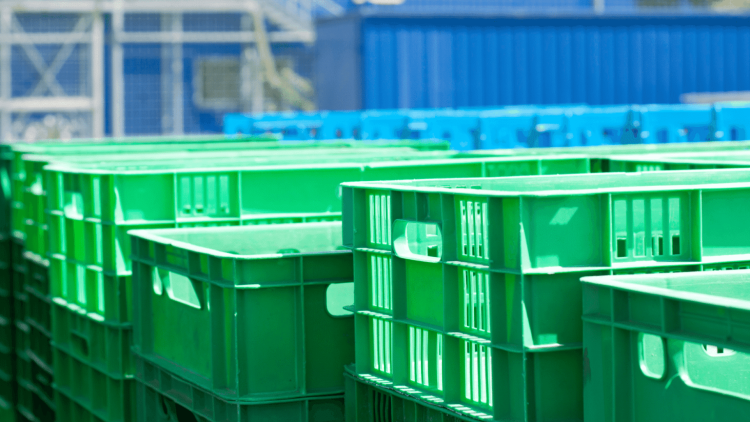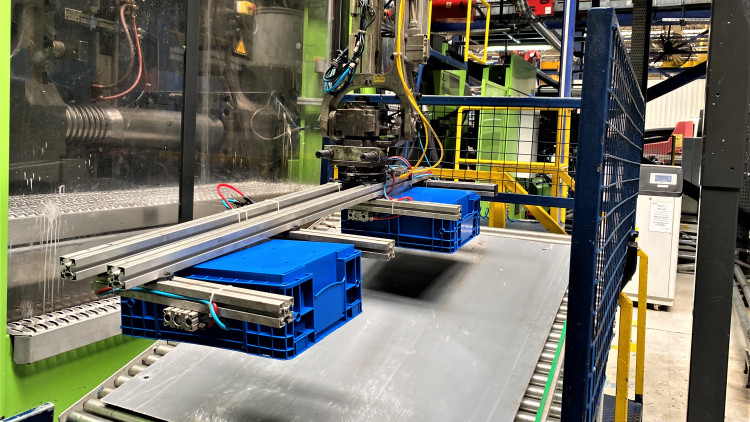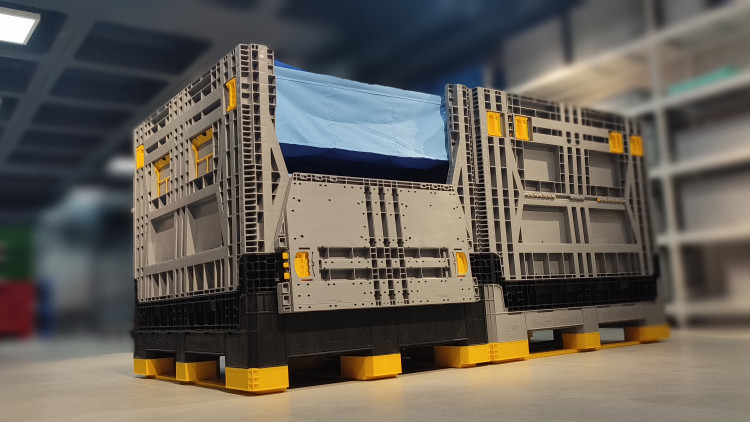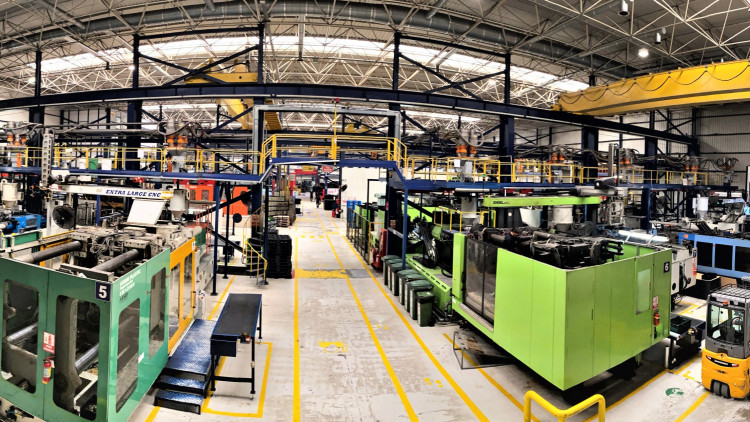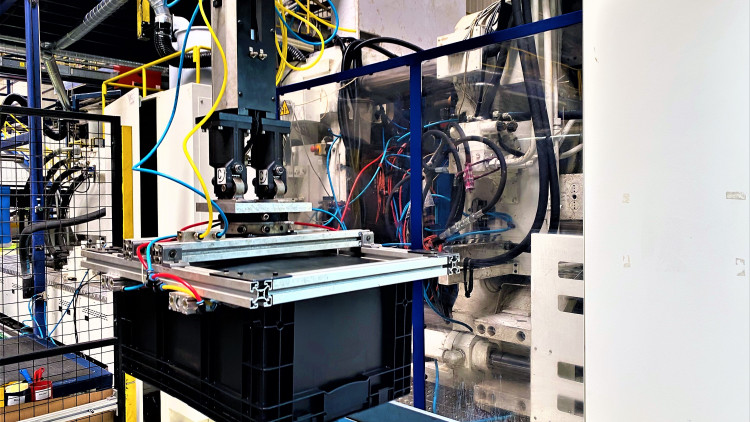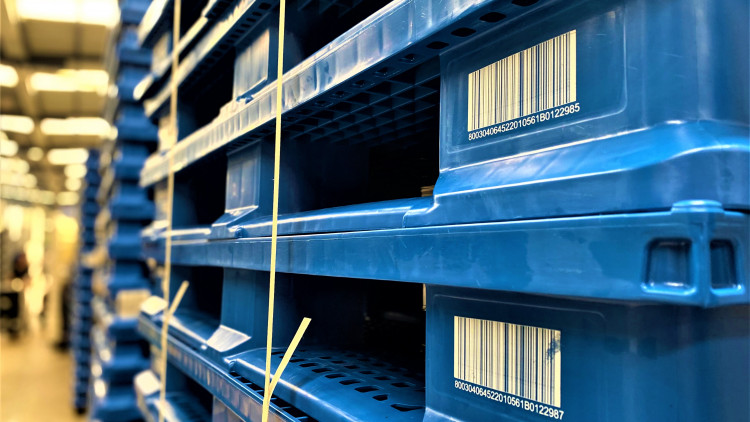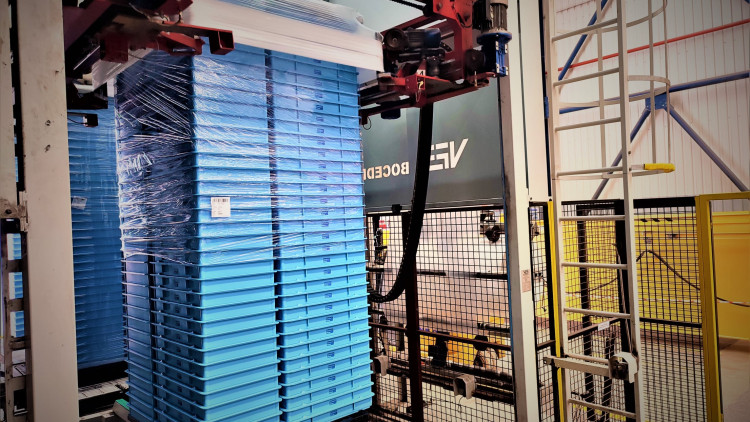Advantages of Plastic Pallets in Logistics: Durability, Cost and Sustainability
May 3, 2025

Efficiency and cost optimization are critical factors in the logistics industry. Widely used in transportation and storage systems, pallets are one of the cornerstones of logistics operations. In addition to traditional wooden pallets, plastic pallets are increasingly preferred. Plastic pallets produced by Benoplast stand out with their durability, longevity, cost advantages and sustainability. In this article, the advantages that plastic pallets offer to the logistics industry will be discussed in detail.
Durability of Plastic Pallets
Plastic pallets are much more durable than wooden pallets. Their resistance to impacts, moisture and chemicals ensures their longevity in the logistics industry.
- Impact Resistance: Plastic pallets are designed to withstand hard impacts. While wooden pallets can crack, break and deform, plastic pallets last much longer.
- Moisture and Chemical Resistance: Wooden pallets can deteriorate when exposed to moisture and chemicals, causing fungal and bacterial growth. Plastic pallets, on the other hand, offer a more hygienic option thanks to their waterproof structure.
- Long Life: Plastic pallets have a much longer lifespan than wooden pallets. It saves companies by providing years of use.
Cost Analysis
The initial cost of plastic pallets may be higher than wooden pallets. However, the long-term advantages make up for this difference and make them a more economical option.
- Long-Term Savings: Since plastic pallets are more durable, they need less replacement. This reduces costs in the long run.
- Less Maintenance and Repair Costs: While wooden pallets may require repair due to problems such as cracking and breaking over time, plastic pallets do not incur such costs.
- Light Weight and Transportation Cost Advantage: Plastic pallets are generally lighter, which can save fuel in the transportation process.
Sustainability and Environmental Impacts
Recyclable plastic pallets contribute to sustainability in the logistics industry. While traditional wooden pallets require tree felling, which depletes natural resources, plastic pallets can be made from recyclable materials and can be reused.
- Recyclability: At the end of their useful life, plastic pallets can be recycled and remanufactured.
- Reducing Carbon Footprint: Plastic pallets can reduce carbon emissions compared to wooden pallets because they are reusable.
- Conservation of Forest Resources: Unlike wooden pallets, plastic pallets play an important role in protecting the natural ecosystem by reducing tree felling.
What are the Plastic Recycling Stages?
Use of Plastic Pallets in the Logistics Sector
Plastic pallets are widely used in different industries. They are preferred in various sectors due to their hygienic structure, durability and light weight.
- Food Industry: Plastic pallets are widely used in food transportation because they are hygienic.
- Pharmaceutical Industry: Plastic pallets are preferred in the pharmaceutical industry, which requires a sterile and hygienic environment.
Automotive Industry: Plastic pallets are used to transport and store heavy and valuable automotive parts.
Plastic pallets are increasingly preferred in the logistics sector due to their durability, long-term cost savings and sustainability. Compared to wooden pallets, they are longer lasting, hygienic and environmentally friendly, increasing the efficiency of logistics operations. Plastic pallets, which are both an economic and ecological option for companies, will become more common in the logistics industry in the future.
For more information please contact us.




